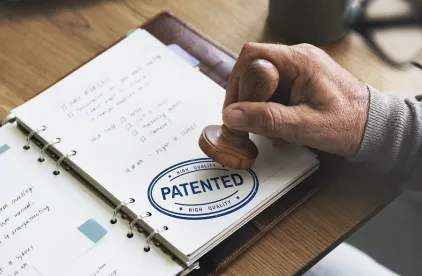There is a common misconception the domestic industry economic prong requirement is insurmountable and an unknowable factor in a patent infringement action at the International Trade Commission (“ITC” or “Commission”), especially for foreign-based companies or non-practicing entities (“NPEs”). This could not be further from the truth. Those in the trenches at the ITC have seen recent trends that show with effective and strategic pre-suit diligence, creative thinking, and experienced ITC counsel; the domestic industry requirement is no bar to a successful investigation.
In order to satisfy the economic prong, a complainant must show that it has made, in the U.S., (a) significant investment in plant and equipment, (b) significant investment of labor or capital, or (c) substantial investment in its exploitation, including engineering, research and development or licensing (19 U.S.C. 1337(a)(1)). These investments must relate to the product protected by the patent, or to the exploitation of the patented technology itself. A company that incurs expenses to patent its own technology and to manufacture in the U.S. products that practice that patent, will undoubtedly meet that test. But modern technological advances and product manufacturing are rarely that simple. Due in large part to the evolving business types seeking an injunction at the ITC, there have been many significant developments in the way the ITC evaluates domestic industry. These developments have led to the incorrect impression that the domestic industry requirement is insurmountable. Despite these misperceptions, the economic prong of the domestic industry requirement is not a bar to foreign-based or non-practicing entities seeking patent infringement redress at the ITC.
Recent developments in the law have shown that the domestic industry requirement is not the insurmountable obstacle some commenters claim. For example, until recently, the Administrative Law Judges at the Commission were divided on whether companies relying on research expenditures to prove a domestic industry were required to show that the expenditures related to the product or, alternatively, related to the patented technology, which is a difficult standard to meet. In a recent decision, discussed in greater detail here, the Commission resolved the division in favor of the easier standard. Now complainants, with sufficient planning and pre-suit diligence, can apply more of their domestic investments in their domestic industry articles to satisfy the domestic industry requirement.
NPEs and foreign-based complainants have employed the recent case law developments, in addition to careful pre-suit planning, to establish a record necessary to prove a domestic industry. In the recent 1067 Investigation, the complainant provided customer technical support services in the U.S. for large milling equipment. The complainant did not design or manufacture the equipment. All of those typically domestic industry-centric activities were conducted by the complainant’s foreign sister corporation outside of the U.S. In previous ITC investigations where the articles were manufactured in large part overseas, the ITC required complainants to provide a comparative analysis of the relative value added by the domestic activities and should the foreign expenses dwarf the domestic expenses, a domestic industry would not exist. In concluding that the complainant satisfied the domestic industry economic prong in the 1067 Investigation, however, the ALJ found that despite the considerable expenses incurred by the foreign sister corporation, the complainant’s expenses for customer technical service were sufficient alone to fulfill the domestic industry requirement. In that Investigation, the foreign sister corporation transferred ownership of the patents to the complainant a few months prior to filing the complaint, thereby focusing the expenditure analysis on the U.S. entity.
Many non-practicing entities rely on licensing expenditures to satisfy the domestic industry requirement. Proving a licensing-based domestic industry has posed challenges for many NPEs as the claimed investments must have a nexus to: (i) the asserted patents, (ii) the licensing activities, and (iii) to the United States. (see Inv. No. 337-TA-859 and Inv. No. 337-TA-694). This nexus is sometimes a challenge to prove when the NPE’s licensing activities are outside the U.S. or where it has licensed a portfolio, rather than the specific asserted patent. In many instances, with sufficient planning, however, the NPE can establish the circumstances to meet the domestic industry requirement.
Pre-filing diligence that can help ensure the complainant's record will meet the domestic industry requirement may include (1) consulting an economic expert; (2) ensuring that the asserted patents are owned by U.S.-based corporations; (3) manufacturing the domestic industry articles wholly or in-significant part in the U.S.; or (4) engaging in research and development and engineering activities (such as customer service and support, product development, warranty repair work) related to the domestic industry article or exploiting the domestic industry article in the U.S.
Although domestic industry is a complex and nuanced requirement, recent changes in ITC precedent and careful, and sometimes creative, pre-suit diligence, have shown the domestic industry requirement is a knowable and attainable requirement.







 />i
/>i
